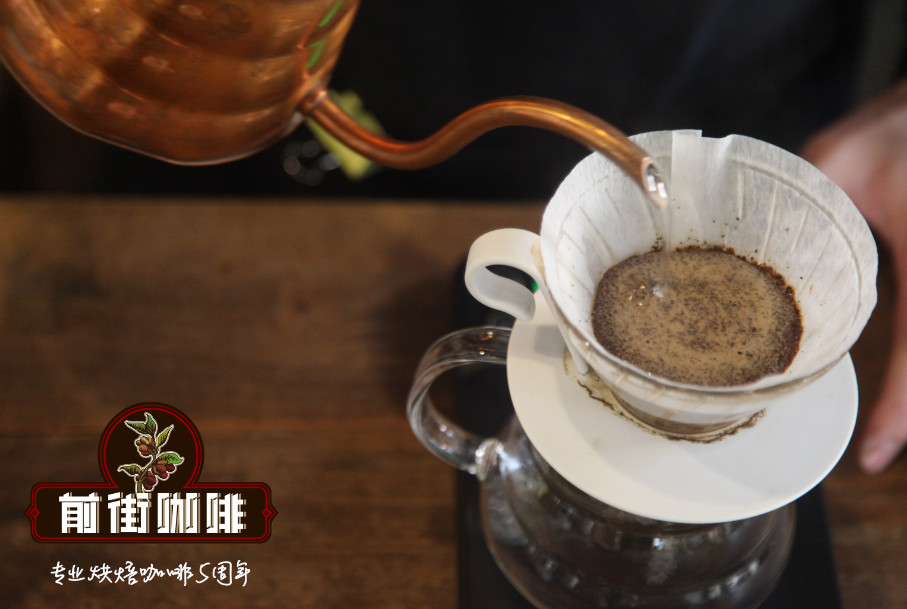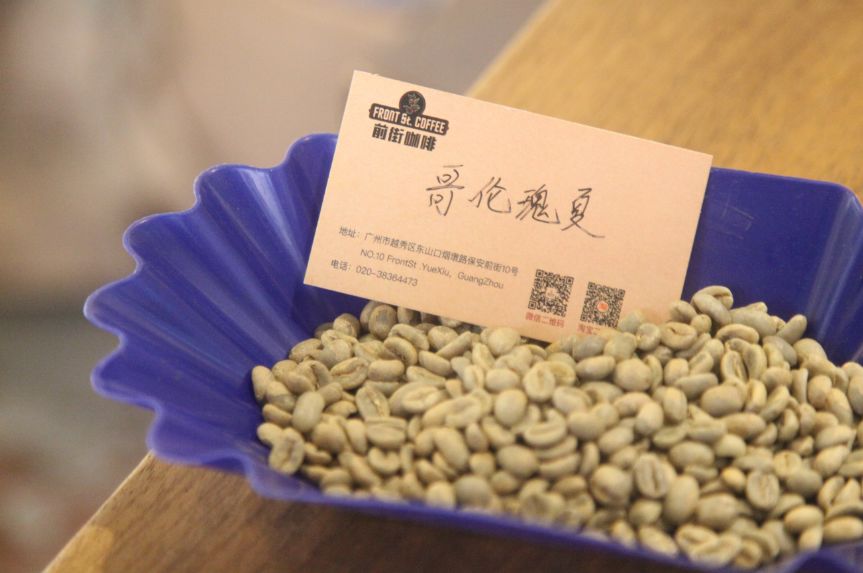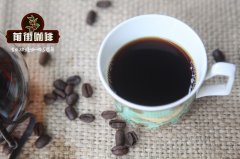What is the best coffee in El Salvador? What is Salvadoran Pacamara Coffee?

Professional coffee knowledge exchange more coffee bean information please follow the coffee workshop (Wechat official account cafe_style)
Among the countries of origin in Central America, El Salvador can be said to be the smallest country in land area, although its output is much less than that of other countries, but the Pacific sea breeze and multi-volcanic environment provide El Salvador coffee farmers with unique planting advantages and diversified flavor performance. At present, the winning variety Pacamara in many cup test competitions was born in El Salvador.
Among the producing areas of El Salvador, the Santa Ana volcano, which is located 2381 meters above sea level west of the capital, has the advantage of soil quality and planting height. Santa Ana volcano, which is still active, erupted in 2005. Although it caused heavy economic losses and some casualties to local coffee farmers in that year, the volcanic ash with organic matter later provided a very rich source of nutrients for the local soil, and Santa Ana is still recognized as one of the best producing areas in El Salvador.
Saint Elena Manor is one of the few estates at the highest altitude in the Santa Ana producing area, which is currently run by Mr. Lima and Mr. Don Fernando Lima and is currently the third generation landowner.
Mr. Fernando has more than 30 years of coffee planting experience since he was young. At present, the main varieties planted in the manor are bourbon and Pacamara. Mr. Fernando adheres to the principle of maintaining environmental diversity in the concept of manor planting. When you first step into the manor, you can feel that it is different from other Salvadoran manors. The manor maintains a very primitive forest environment. At the same time, Mr. Fernando also retained a high proportion of old bourbon coffee trees, some of which are even more than 15 years old. for landowners, these coffee trees are the fruit of painstaking maintenance. Coffee trees will not be cut down because of older trees and less fruit, and these old bourbon trees can provide better cup flavor although they have less fruit.
Traditionally, Salvadoran coffee farmers do not deal with the exposure of coffee fruits so carefully and relatively poorly in terms of equipment, but Fernando constantly updates a lot of equipment in the processing plant, making Santa Elena Manor one of the few estates in El Salvador to use African scaffolding for the sun drying of coffee fruits. Although the use of African scaffolding equipment tends to stretch longer in the sun, it can improve the cleanliness and sweetness of coffee.
At the same time, Mr. Fernando Fernando also began to set up his own water washing treatment station 15 years ago, with its own water washing treatment station, so that the landowner can control the subsequent coffee treatment and carry out more detailed honey treatment batch experiments. In St. Elena Manor, Mr. Fernando does not immediately undergo peeling or sun treatment after picking the coffee red fruit. Instead, the red fruit is first placed in a clean tank in the treatment plant to improve the sweetness of the coffee, and finally the follow-up treatment is carried out.
Although many excellent batches of washed coffee can be found in El Salvador in the past, it is often slightly inferior to other countries in terms of sweetness and mellowness. Santa Elena Manor is one of the few estates in El Salvador with honey treatment and sun experience. Fernando Manor almost reached the point of being critical of every detail of honey treatment and sun exposure. These efforts have enabled St. Elena Manor to win a total of seven COE competitions since 2003, and two of the top 10 Central American competitions organized by the Rainforest Conservation Union.
Santa Elena Manor is located in the Santa Ana Volcano volcano-producing area of Santa Ana, west of El Salvador.
Due to the volcano, the soil of the manor is very rich in organic matter. The average elevation of the manor is about 1850 meters and the terrain is steep. It is one of the highest manors in the area. At present, the owner of the manor is managed by Mr. Don Fernando Lima. Mr. Fernando's idea is to maintain the original traditional planting method of the country as far as possible, in addition to the necessary pruning and irrigation, the manor maintains a wide range of natural agriculture and forestry ecology. More than 90 per cent of the estate is planted with bourbon varieties, while Fernando uses modern agricultural management techniques to divide the estate into different blocks to closely monitor and record soil quality, fertilization and coffee trees.
In addition to excellent planting, St. Elena Manor also has its own coffee washing treatment facilities. for farmers with water washing stations, in addition to avoiding price exploitation to outsiders, the best thing is that they can deal with carefully selected coffee red fruits. Fernando is very rigorous in the process of washing treatment, in addition to regularly recording the temperature and humidity of the day. More attention should be paid to the treatment of coffee and raw beans in the fermentation tank.
Pacamara has a full, rich and changeable flavor. Few coffee varieties have both sour and rich sweetness, as well as apricot, vanilla, tropical fruit, chocolate, sweet spices and so on. The disadvantage is that the yield is low, and mature Pacamara trees will show signs of gradual decline in yield or unstable flavor. When planted on farms that are not very good, they tend to be poor in cleanliness and have a woody smell.
END
Important Notice :
前街咖啡 FrontStreet Coffee has moved to new addredd:
FrontStreet Coffee Address: 315,Donghua East Road,GuangZhou
Tel:020 38364473
- Prev

Special report on roasting and brewing of washed Rosa Coffee at San Pedro Manor in Tolima, Colombia
Professional coffee knowledge exchange more coffee bean information please follow Coffee Workshop (Wechat official account cafe_style) Colombia Tolima Finca San pedro Chateau San Pedro, Colombia: Columbia production area: Tolima altitude: 1860m treatment: washing Grade: SUPREMO Variety: rose 01 | production area introduction to Columbia
- Next

Coffee beans the difference between new beans and old beans how to avoid minefields and choose coffee that suits you
Professional coffee knowledge exchange more coffee bean information please follow the coffee workshop (Wechat official account cafe_style)
Related
- Detailed explanation of Jadeite planting Land in Panamanian Jadeite Manor introduction to the grading system of Jadeite competitive bidding, Red bid, Green bid and Rose Summer
- Story of Coffee planting in Brenka region of Costa Rica Stonehenge Manor anaerobic heavy honey treatment of flavor mouth
- What's on the barrel of Blue Mountain Coffee beans?
- Can American coffee also pull flowers? How to use hot American style to pull out a good-looking pattern?
- Can you make a cold extract with coffee beans? What is the right proportion for cold-extracted coffee formula?
- Indonesian PWN Gold Mandrine Coffee Origin Features Flavor How to Chong? Mandolin coffee is American.
- A brief introduction to the flavor characteristics of Brazilian yellow bourbon coffee beans
- What is the effect of different water quality on the flavor of cold-extracted coffee? What kind of water is best for brewing coffee?
- Why do you think of Rose Summer whenever you mention Panamanian coffee?
- Introduction to the characteristics of authentic blue mountain coffee bean producing areas? What is the CIB Coffee Authority in Jamaica?

